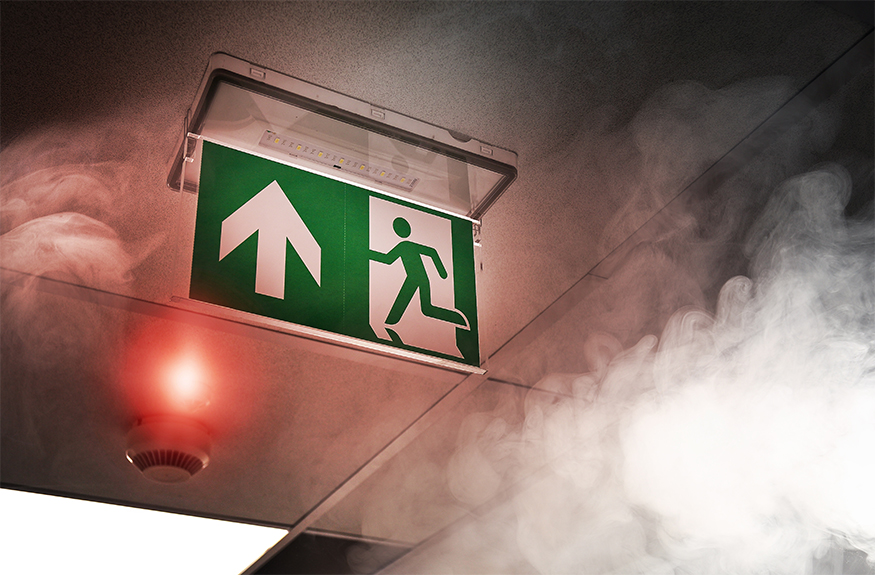Who Ya Gonna Call? Quick Response for Emergency Scenarios
When the phone rings and disaster strikes, what is supposed to happen?
Beyond having a communications plan or a phone tree, emergency scenarios involve a level of teamwork and organization above the day-to-day responsibilities. With the right mindset and preparation, an emergency scenario can be handled quickly, effectively and safely.
The first thing to consider is the immediate response plan. Having a communications plan is essential and practicing it can make sure it runs smoothly. Brock Ryan, co-founder of Fortress Consulting, said there are three things that take priority.
The first is notifying tenants. Whether through an intercom system, a fire alarm or a mass communication platform, notifying tenants is the first step in any emergency. Secondly, management and engineering must use their building as a tool against threats. Make sure the building systems are working to help you. Examples include fire suppression systems or access control for locking down the building. Last, the staff should meet on site with any response personnel to assist them, relay knowledge of the building and access to whatever systems they may need.
While these should be your first priority, Ryan said there are other important steps to making sure your response protocol is running smoothly. It is important to make sure responsibilities are assigned to a position rather than a person. Having a reliable, fix-it-all engineer or member of management is great, but in an emergency response scenario, it could be detrimental to have all the responsibility tied to one person.
Make sure to teach all members of staff the emergency response plans no matter where on the org chart they are. You never know who is going to be on site or in the office when emergency strikes, so all members of staff should be informed. Ryan said that too often he sees one member of management being responsible for the entirety of the emergency protocol or knowledge of certain systems. Educating newer crew members on emergency systems, fixes and obligations can give them confidence and create a better team.
Lastly, Ryan said mindset is at the forefront when it comes to quickly responding to emergency scenarios. He said the thing to remember is that your crew is a team. Sometimes a threat may be an all-hands situation. That means that everyone must be trained and able to work as a unit. The notion that a person is only responsible for one thing during one scenario does not prepare the property well for the random nature of emergencies and threats. All staff should be prepared and knowledgeable on the systems of the building so that they feel confident enough to be a team and take on responsibility in the case of an emergency.
You should aim for a focused mindset, not panicked. Know within yourself if you have a fight or flight response in times of high-stress and relay that to whoever oversees emergency protocol. That way they know how to train you and what parts of the plan you would succeed at the best. Confidence and calm come from knowing what to do, so if the proper steps are taken and the proper training is given, any staff member should be prepared for whatever comes their way.
Sources:
Brock Ryan, Fortress Consulting









